
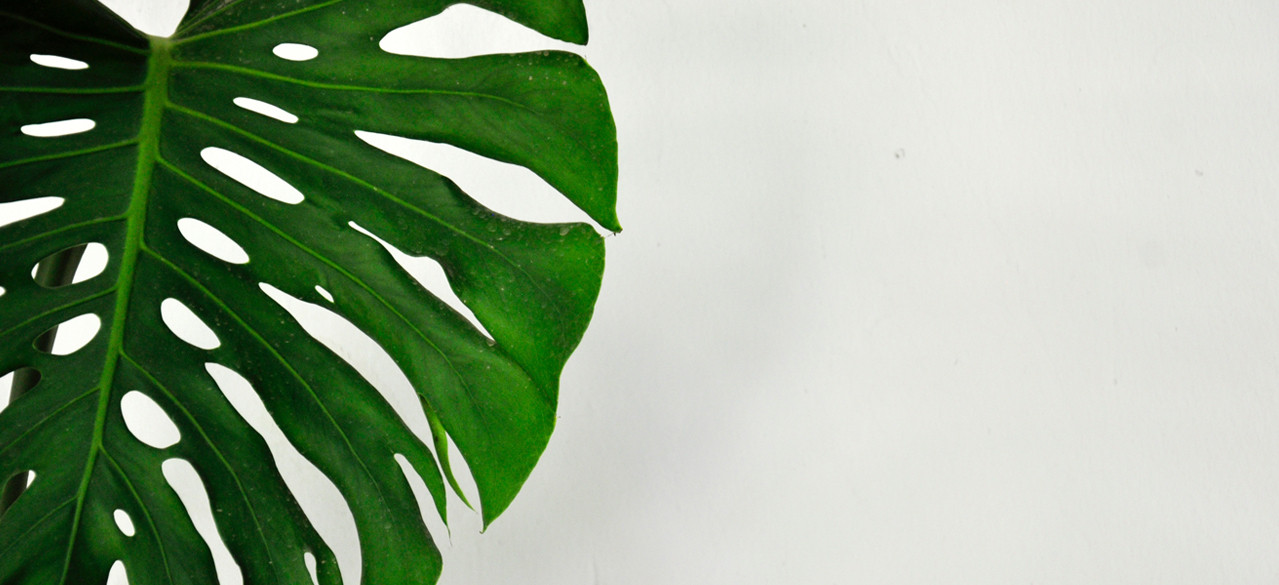
FCO Travel Guidance: Personal Food, Plant and Animal Product Imports
21 Feb 2017 by Olga Brighton
FCO travel guidance for individual travellers bringing food or other products with a plant or animal origin into the UK for personal use, or receiving such products by post.
Overview
What products you can bring into the UK depends on where you are travelling from, and not where the products were produced or packaged.
If you’re travelling from a country within the EU, you can bring any fresh foodstuffs - fruit, vegetables, meat, dairy or other animal products (eg fish, eggs and honey) - into the UK.
When travelling from outside the EU, there are strict rules about bringing food products, plants and plant products back into the UK for your own personal consumption or use. This guide gives further details about the restrictions on other food products being imported for personal use, in luggage or by post or courier, and explains exactly which foodstuffs are exempt from the restrictions. It also gives additional details about some European (non-EU) countries and the restrictions that apply to them.
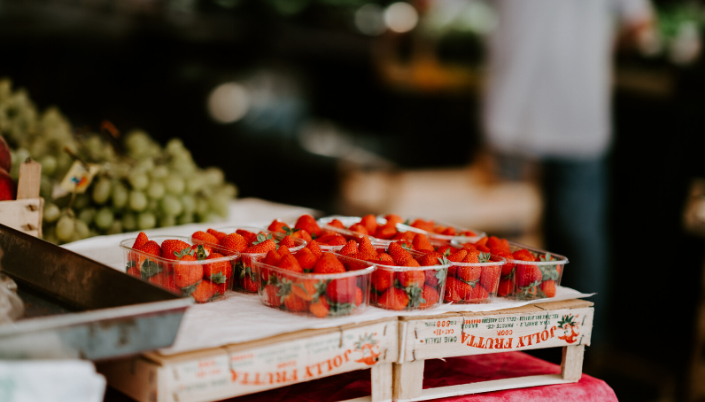
Diseases like foot and mouth disease and bird flu can be brought into the UK via animal products (particularly those containing meat or milk). Fruits and vegetables may carry pests that can infect plants and vegetables in the UK. Such diseases and pests can have a devastating effect on our farming livestock, crops and the environment. Animal-related products may also risk human health from diseases, residues or contaminants (eg from fish, honey, untreated animal hides).
The risks can also be economic: the foot and mouth disease outbreak in 2001 is estimated to have cost £3 billion relating to agriculture and the food chain.
This guide does not cover produce taken from the UK to another country. You are strongly advised to check with the authorities of the country you want to export to, as only they can give you failsafe advice as to what is an acceptable and legal import into their country.
Read also: FCO Travel Advice: Be Aware of Your Surroundings
Summary of Restrictions
From EU countries: You can bring any fruit, vegetables, meat, dairy or other animal products (eg fish, eggs and honey) into the UK if you’re travelling from a country within the EU.
From non-EU countries the following items are banned:
- all meat and meat products
- all milk and dairy products
- potatoes
From non-EU countries the following items are restricted:
- fruit and vegetables - no more than 2kg total weight combined per person travelling bivalves (live), egg products, eggs and honey
- fish, bivalves (dead) and fish/fishery products - no more than 20kg total weight (fish must be gutted if fresh, or processed, ie cooked, cured, dried or smoked) 2kg total weight combined per person - certain fruits and vegetables

The rules apply to any products carried in your personal luggage or sent by post (including those ordered online) and even if they’re for yourself, bought in a shop (including at an airport), home-grown/made or vacuum packed.
See Animals and animal products: international trade regulations.
Eligible European countries
The EU countries (excluding the UK) are Austria, Belgium, Bulgaria, Croatia, Cyprus, Czech Republic, Denmark, Estonia, Finland, France, Germany, Greece, Hungary, Ireland, Italy, Latvia, Lithuania, Luxembourg, Malta, Netherlands, Poland, Portugal (including Azores and Madeira), Romania, Slovakia, Slovenia, Spain and Sweden.
The Community customs territory includes Andorra, Canary Islands, Channel Islands, Isle of Man, Liechtenstein, Norway, San Marino and Switzerland. These countries also count as EU countries in this context.
Ineligible European countries
Although Gibraltar is part of the EU, it is outside the Community customs territory so is therefore treated as a non-EU country.
Though the whole of Cyprus is part of the EU, goods from any area of Cyprus not under the effective control of the Government of the Republic of Cyprus are treated as non-EU imports.
Faeroe Islands, Greenland and Iceland are dealt with in the section below, Food from outside the EU.
Additional restrictions
For certain protected species, additional restrictions may apply for products brought or sent from Andorra, Canary Islands, Channel Islands, Isle of Man, Liechtenstein, Norway, San Marino and Switzerland.
- caviar of sturgeon species: 125 grams per person:
If you wish to send by post, regardless of the amount, or bring in more than 125 grams in your personal luggage you must have the correct CITES (Convention on International Trade in Endangered Species) permits, or all of the product will be seized. Please contact the UK CITES Management Authority on 0117 372 3700, including if you need confirmation as to whether the caviar in question is listed as an endangered species.
Food from outside the EU: details of restrictions
Note that though the whole of Cyprus is part of the EU, goods from any area of Cyprus not under the effective control of the government of the Republic of Cyprus are treated as non-EU imports. For restrictions from Faeroe Islands, Greenland and Iceland, see sections below.
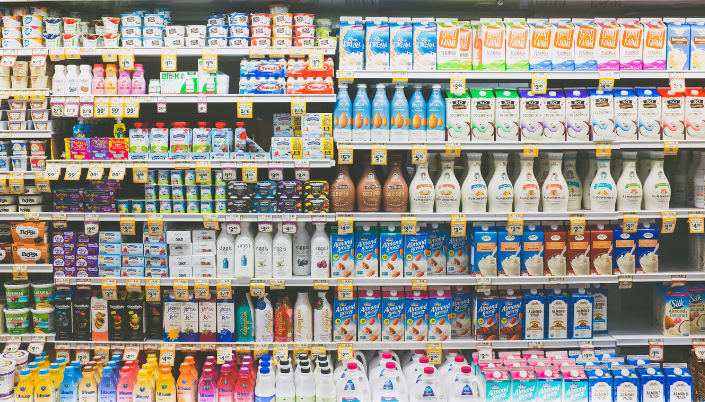
| Meat and dairy products (other than powdered infant milk, infant food, special foods and special pet feed required for medical reasons) | Not permitted |
| Powdered infant milk, infant food, special foods and special pet feed required for medical reasons* | 2kg total weight per person travelling |
| Special pet feed required for medical reasons* | 2kg total weight per person travelling |
*provided that in both cases:
- the product does not require refrigeration before consumption
- the product is in commercially branded packaging
- the packaging is unbroken unless in current use
| Fish/fishery products/bivalves (dead) | 20 kg total weight per person travelling or the weight of one fish, whichever weight is the highest |
Fresh fish must be gutted.
Fishery products include:
- processed fish (dried, cooked, cured or smoked)
- lobsters and prawns
- caviar not from certain protected species eg salmon caviar
Bivalves (dead) include:
- mussels
- oysters
Read also: 8 Countries That Will Teach You to Eat Healthier
| Other animal products | 2 kg total weight per person travelling |
Other animal products include:
- bivalves (live) eg mussels and oysters
- eggs/egg products
- frogs’ legs (hind part of the frog with the skin/internal organs removed)
- honey
- insect meat
- snail meat (edible land snails, shelled)
Frogs’ legs must be the back (ie the hind) part of the frog with the skin/internal organs removed. If the skin/internal organs are still attached, the frogs’ legs are not permitted. May be fresh, chilled, frozen or processed.
Snails must be shelled, cooked and prepared/preserved meat of edible land snails, including canned snailmeat, and snail shells re-filled with snail meat. Live snails, dead snails still in their shells and water snails are not permitted.
In accordance with Commission Decision 2005/692/EC (as amended) which imposes certain protection measures to prevent the spread of Avian Influenza (more commonly known as ‘bird flu’) into the EU, personal imports of raw eggs for human consumption from China (not including Hong Kong or Macao), Malaysia or South Korea (the Republic of Korea) are banned. The ban does not apply to eggs that have been cooked or processed in some way which are still permitted as part of the 2kg concession.
For certain protected species, additional restrictions may apply eg:
- caviar of sturgeon species: 125 grams per person
If you wish to send by post, regardless of the amount, or bring in more than 125 grams in your personal luggage you must have the correct CITES (Convention on International Trade in Endangered Species) permits, or all of the product will be seized. Please contact the UK CITES Management Authority on 0117 372 3700, including if you need confirmation as to whether the caviar in question is listed as an endangered species
The total weight of the caviar is included as part of the 20kg total weight per person allowance covering products from the ‘Fish/fishery products/bivalves (dead)’ category.
From Faeroe Islands, Greenland and Iceland
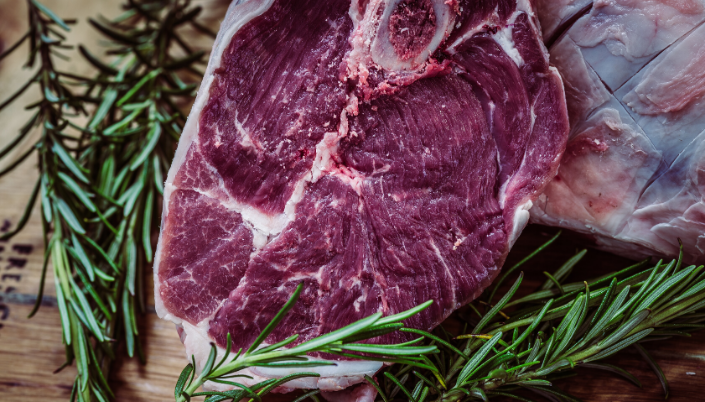
You may only bring in or send by post personal imports of the following products:
| Meat and dairy products (other than powdered infant milk, infant food, special foods and special pet feed required for medical reasons) | 10 kg per person |
| Powdered infant milk, infant food, special foods and special pet feed required for medical reasons* | 10kg per person |
| Special pet feed required for medical reasons* | 10kg per person |
*provided that in both cases:
- the product does not require refrigeration before consumption
- the product is in commercially branded packaging
- the packaging is unbroken unless in current use
For certain protected species, additional restrictions may apply eg:
- caviar of sturgeon species: 125 grams per person
If you wish to send by post, regardless of the amount, or bring in more than 125 grams in your personal luggage you must have the correct CITES (Convention on International Trade in Endangered Species) permits, or all of the product will be seized. Please contact the UK CITES Management Authority on 0117 372 3700, including if you need confirmation as to whether the caviar in question is listed as an endangered species
[Note that from Croatia and Greenland, the total weight of the caviar (from certain protected species) is included as part of the 20kg total weight per person allowance within fish/fishery products (including caviar not from certain protected species eg salmon caviar) - see below.]
Greenland: additional restrictions
| Fish/fishery products/bivalves (dead) | 20 kg total weight per person travelling or the weight of one fish, whichever weight is the highest |
Fresh fish must be gutted.
Fishery products include:
- processed fish (dried, cooked, cured or smoked)
- lobsters and prawns
- caviar not from certain protected species eg salmon caviar
Bivalves (dead) include:
- mussels
- oysters
| Other animal products | 10 kg total weight per person travelling |
Other animal products include:
- bivalves (live) eg mussels and oysters
- eggs/egg products
- frogs’ legs (hind part of the frog with the skin/internal organs removed)
- honey
- reptile and insect meat
- snail meat (edible land snails, shelled)
Frogs’ legs must be the back (ie the hind) part of the frog with the skin/internal organs removed. If the skin/internal organs are still attached, the frogs’ legs are not permitted. May be fresh, chilled, frozen or processed.
Snails must be shelled, cooked and prepared/preserved meat of edible land snails, including canned snailmeat, and snail shells re-filled with snail meat. Live snails, dead snails still in their shells and water snails are not permitted.
Restrictions on animal skins and bushmeat
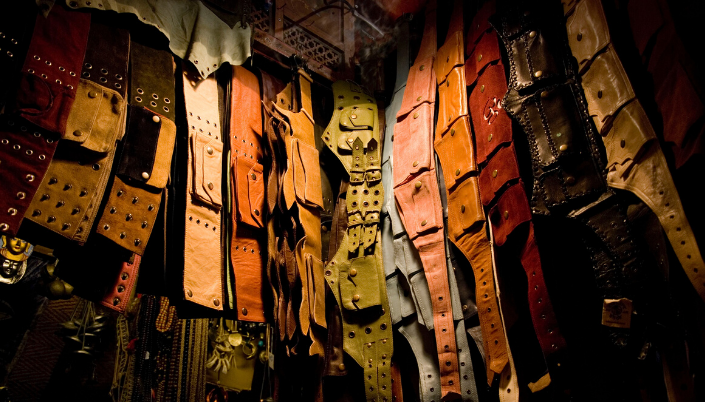
Animal hides and skins (either with or without hairs/fur) must be tanned or they are illegal products. Tanning means the hardening of hides and skins using vegetable tanning agents, chromium salts or other substances such as aluminium salts, ferric salts, silicic salts, aldehydes and quinones or other synthetic hardening agents. There is no specific limit on the amount you can bring.
International trade in bushmeat derived from animals is either banned completely or controlled by means of a permitting system. Personal imports of all meat from non-EU countries are prohibited. Penalties for illegal importation are high with up to 7 years imprisonment and/or an unlimited fine. There is no precise definition of bushmeat that is universally accepted, although it is generally understood to be the meat of any wild animal hunted for food. It is not necessarily from endangered species.
Checks, seizures, penalties and appeals
Carrying banned animal products is illegal, and there are heavy penalties for smuggling. If you fail to declare any products that are not permitted, you could face severe delays or and you will be liable to action for a criminal offence including prosecution.
The EU operates a system of strict controls on legal imports of animal products including meat. All products from non-EU countries can only be imported through designated BIPs, where they undergo veterinary checks by an official veterinary surgeon to make sure import conditions are met. All consignments are subject to documentary and identity checks at the BIP, and to prescribed levels of physical checks according to the type of product and country of origin. Imports are only permitted from those non-EU countries and product plants that have been authorised by the EU for the importation of the product in question. Such authorisation is based on guarantees to the EU about hygiene standards.
Border Force (BF) is responsible for detecting smuggled goods from non-EU countries at Great Britain points of entry (except in areas designated as Border Inspection Posts (BIPs)). This includes postal imports whether at postal depots, ports or airports. They are also responsible for enforcing controls under the Convention on International Trade in Endangered Species of Wild Fauna and Flora (CITES).
Department of Agriculture, Environment and Rural Affairs for Northern Ireland (DAERA) has responsibility in Northern Ireland, both at BIPs and other points of entry.
Seizures
It is important you declare any products you are bringing in from outside the EU. If you are unsure about any of the products you are bringing in, speak to a BF Officer in the red channel or on the red point phone. If you declare any illegal products to BF, they will take them away and destroy them and no further action will be taken.
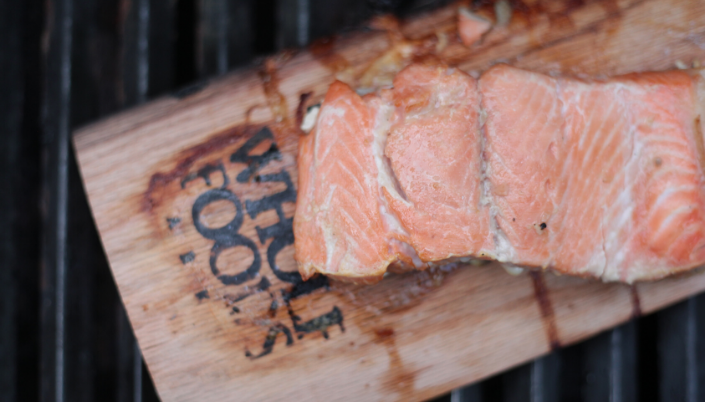
If 3 friends arrived at customs together and one of them has 60kg of smoked salmon this would be permitted, even though the total amount was carried by one person. However the 3 people must all be present (one cannot be on a separate flight or a different train or ship).
The concession will be determined on the gross weight including the packaging, eg fish packed with ice - if the gross weight of the fish and the ice together exceeds the concession, the whole amount will be seized. If the gross weight including the box exceeds the concession, the whole amount will be seized.
Border Force (BF) will take a pragmatic approach to seizing other items mixed or packed with animal products. However, if clothing or the bag appear to be contaminated ie there is blood on these items, then they will be seized and destroyed. For instance, if meat has been packed with fish of less than 20kg, cross-contamination will mean the fish will also be seized.
The rules apply to any products sent either to a private, named individual by post, courier service or private carrier (including those ordered online) and even if they are for yourself, bought in a shop (including at an airport), home-grown/made or vacuum packed.
Checks on mail arriving at international sorting offices are carried out by BF Officers looking for all contraband products. Illegal products will be seized and destroyed and you will be issued with a seizure notice by post.
If you are concerned the products in the parcel may have been illegally sent to this country or if the products do not appear to be healthy you should notify your local Environmental Health Office. They should send an officer to seize and destroy the parcel.
Appeals
BF has an appeal procedure detailed in their Notice 12a. If BF is found to have wrongly seized the products then compensation for their loss is likely to be paid. The original products will have been destroyed as all perishable items are classed for immediate disposal.
Exempted food products
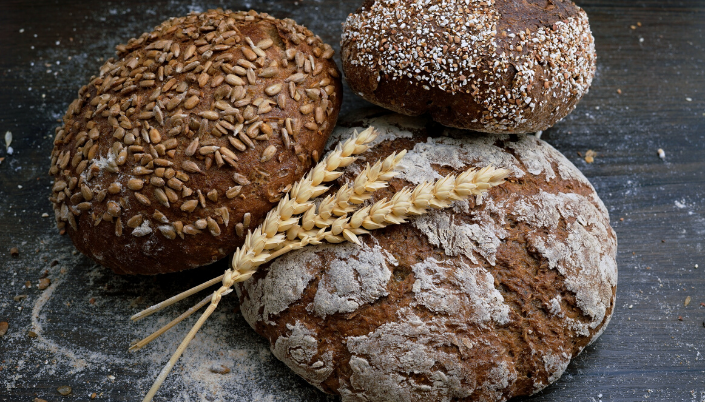
The following products are exempted from the rules:
- bread (but not sandwiches filled with meat or dairy products)
- cakes (but not if they contain fresh cream*), biscuits
- chocolate and confectionery (but not if the sweets are made with high levels of unprocessed dairy ingredients)*
- unfilled gelatine capsules
- food supplements packaged for the final consumer containing small amounts of an animal product (such as fish oil capsules) and those including glucosamine, chondroitin or chitosan
- meat extracts in liquid or spreadable form (but not pate or meat concentrates eg stock cubes, gravy granules or flavouring sachets or any that contain pieces of meat)
- olives stuffed with fish
- pasta and noodles, if processed or cooked (but not if mixed or filled with meat or meat products)
- soup, stocks and flavourings packaged for the final consumer containing meat extracts, meat concentrates, animal fats or fish oils, powders or extracts (but not if pieces of meat/fish eg when dissolved in water)
- any other food product not containing any fresh or processed meat or dairy and with less than 50% of processed egg or fishery products
*Confectionery, chocolate or cakes (including Christmas cake, Simnel cake or cakes containing nuts) are permitted from any country as long as they are for your personal consumption and do not contain fresh cream or high levels of dairy products. Confectionery that contain high levels of dairy products include Burfi, Gulab Jaman, Halwah or Halva, Ras Malai, RasGullah, Ladoos, and Chum Chum.
Read also: FCO: Additional Hand Luggage Restrictions on Some Flights to the UK
We accept

